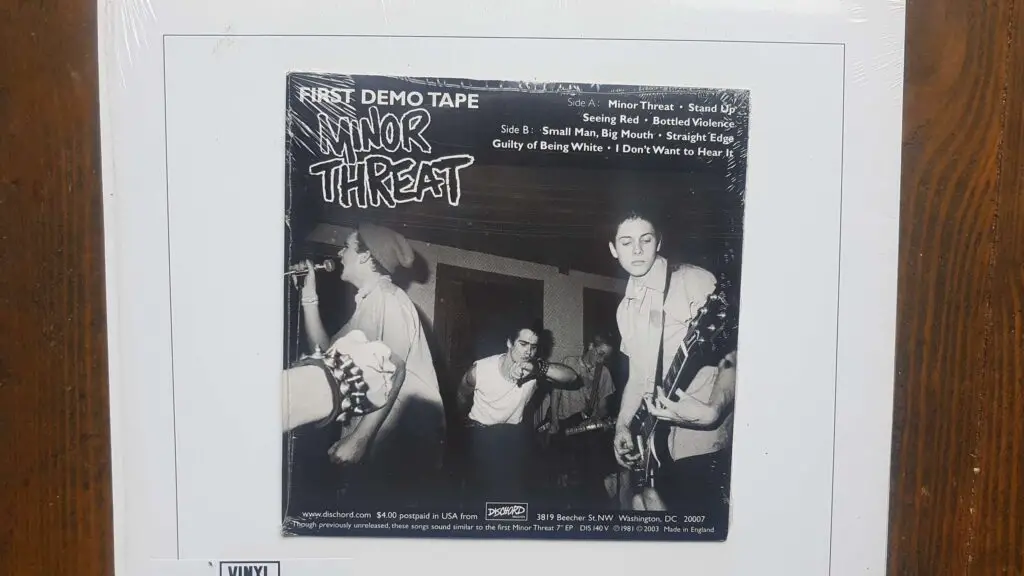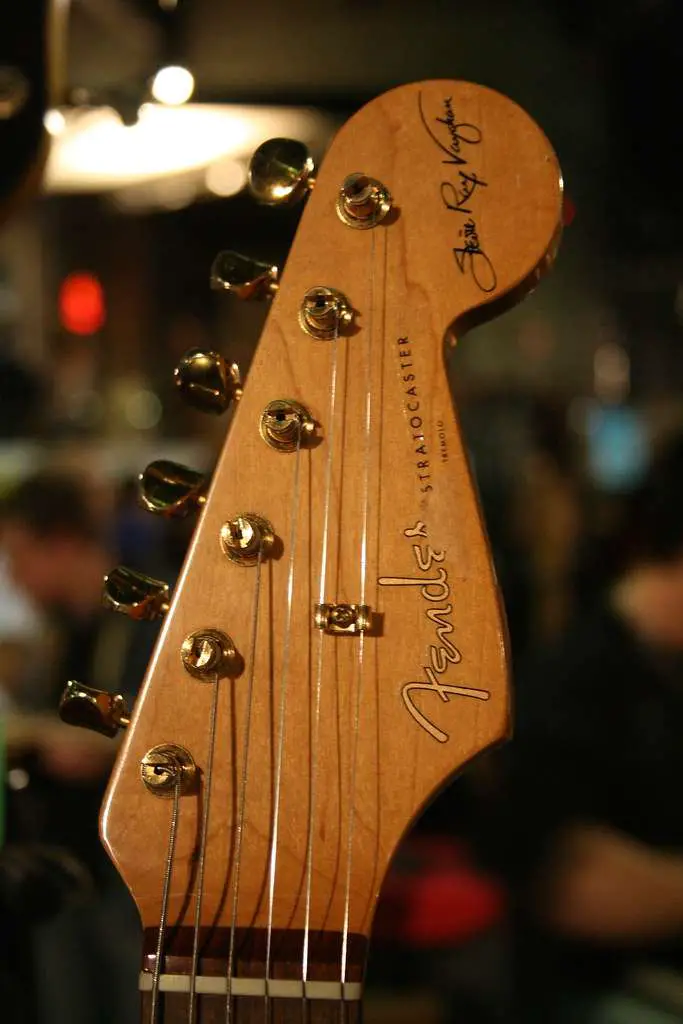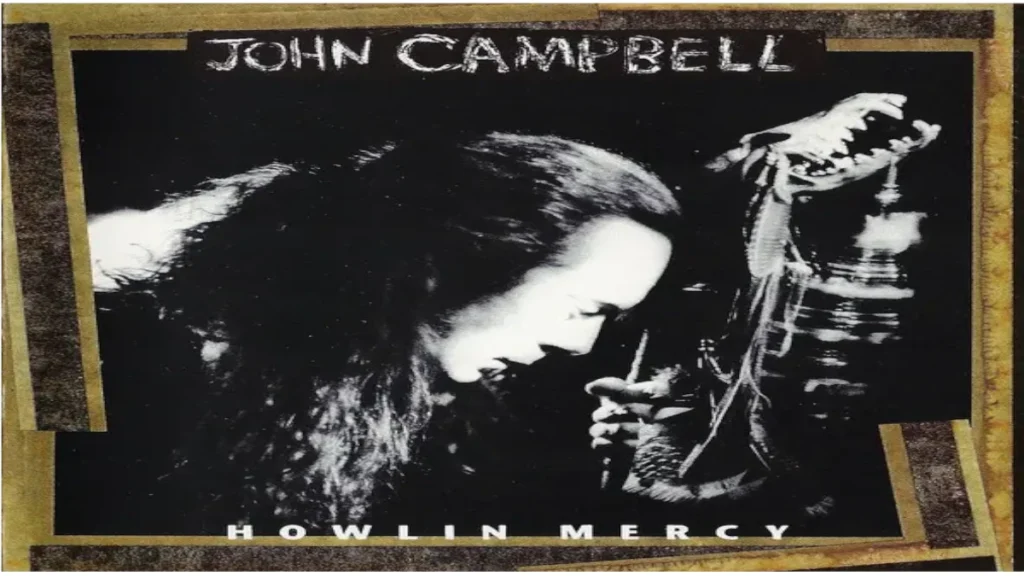Ian MacKaye, the legendary punk rock icon, continues to make waves in the music industry even in 2024. With his unwavering passion and dedication to his craft, MacKaye remains a prominent figure in the punk rock scene. Throughout his career, MacKaye has been a driving force behind numerous influential bands, including Minor Threat and Fugazi. His relentless pursuit of artistic expression and his refusal to conform to mainstream norms have solidified his status as a true punk rock pioneer. MacKaye’s guitar playing has always been characterized by its raw energy and distinctive sound. He has a knack for creating catchy riffs and powerful chord progressions that resonate with listeners.
Whether it’s the aggressive and fast-paced style of Minor Threat or the more melodic and introspective approach of Fugazi, MacKaye’s guitar playing always leaves a lasting impression. In addition to his musical contributions, MacKaye’s DIY ethos and commitment to independent music have had a profound impact on the punk rock community. He has been a vocal advocate for maintaining artistic integrity and staying true to one’s principles, inspiring countless musicians to follow in his footsteps. As we look to the future, it’s clear that Ian MacKaye’s influence will continue to shape the punk rock landscape. His unwavering dedication to his craft and his refusal to compromise have made him a true icon in the music industry. Whether it’s through his music or his activism, MacKaye’s impact will be felt for years to come.
Ian MacKaye on the Power of Punk
Ian MacKaye, the legendary punk rock icon, has always been a staunch advocate for the power of punk music. Punk, for MacKaye, is not just a genre of music, but a way of life and a means of self-expression. He believes that punk can challenge societal norms, give a voice to the marginalized, and inspire change. One of the key aspects of punk that MacKaye emphasizes is its raw and unfiltered nature. Punk music is known for its aggressive sound, rebellious lyrics, and DIY ethos. It is a genre that encourages individuals to pick up an instrument, start a band, and express themselves without any formal training or restrictions. This accessibility and freedom are what make punk so powerful.
MacKaye also highlights the community aspect of punk. Punk shows and venues have always been spaces where people from different backgrounds can come together, share their experiences, and find a sense of belonging. The energy and unity that can be felt at a punk show are unparalleled, creating a powerful and transformative experience for both the performers and the audience. Furthermore, MacKaye believes that punk has the potential to challenge the status quo and inspire social and political change. Punk lyrics often tackle issues such as inequality, injustice, and oppression, encouraging listeners to question authority and take action.
Through his music and activism, MacKaye has consistently used punk as a platform to address important social issues and advocate for positive change. In summary, Ian MacKaye recognizes the power of punk music to challenge norms, create community, and inspire change. His unwavering belief in the transformative power of punk has shaped his career and continues to influence generations of musicians and fans alike.
Why did Ian Makaye play in so many bands?
Ian MacKaye, the punk rock icon, has been involved in numerous bands throughout his career. This begs the question: why did he play in so many bands? One reason is his insatiable passion for music and his desire to explore different genres and styles. MacKaye’s versatility as a musician allowed him to experiment with various sounds and collaborate with different artists. Another factor that contributed to MacKaye’s involvement in multiple bands is his commitment to the DIY (do-it-yourself) ethos of punk rock. He believed in creating music on his own terms, without the constraints of major record labels or commercial success.
By forming different bands, MacKaye was able to maintain creative control and express himself authentically. Furthermore, MacKaye’s desire to connect with different communities and audiences played a role in his band-hopping. Each band he joined had its own unique fan base which allowed him to reach a wider audience. This enabled him to spread his message and influence more people through his music.
Lastly, MacKaye’s constant drive for innovation and growth motivated him to explore new musical territories. Playing in different bands provided him with opportunities to push boundaries, challenge himself, and evolve as a musician. In conclusion, Ian MacKaye played in so many bands due to his passion for music, commitment to the DIY ethos, desire to connect with diverse communities, and his drive for innovation. His musical journey has left an indelible mark on the punk rock scene and continues to inspire generations of musicians today.
Which guitars did Ian Makaye play most often?
Ian MacKaye, the punk rock icon, is known for his distinctive guitar-playing style. Throughout his career, he has favored certain guitars that have become synonymous with his sound. Two guitars that Ian MacKaye has played most often are the Gibson SG and the Fender Telecaster. The Gibson SG is a solid-body electric guitar that has a rich, powerful tone. MacKaye’s use of the Gibson SG can be heard in bands like Minor Threat and Fugazi, where he created aggressive and energetic riffs. The SG’s versatility allowed MacKaye to switch between heavy distortion and cleaner tones, adding depth to his music. Another guitar that MacKaye frequently played is the Fender Telecaster. Known for its bright and twangy sound, the Telecaster was a perfect fit for MacKaye’s punk rock style.
He used the Telecaster in bands like Embrace and The Evens, showcasing its clean and crisp tones. The simplicity and reliability of the Telecaster suited MacKaye’s DIY approach to music. Both the Gibson SG and the Fender Telecaster have become iconic instruments associated with Ian MacKaye’s influential punk rock career. His choice of guitars reflects his commitment to creating raw, authentic music that resonates with audiences. Whether it’s the aggressive power of the Gibson SG or the bright tones of the Fender Telecaster, MacKaye’s guitar choices have played a significant role in shaping the punk rock sound.
Makayes guitar playing with Minor Threat
Makayes guitar playing with Minor Threat: One of the most notable bands that Ian MacKaye played guitar in is Minor Threat. Formed in the early 1980s, Minor Threat was a pioneering hardcore punk band known for their fast and aggressive sound. MacKaye’s guitar playing with Minor Threat was a driving force behind their intense and powerful music. Using his preferred guitars, the Gibson SG and the Fender Telecaster, MacKaye created a unique and distinctive sound that became synonymous with the band.
With the Gibson SG, he unleashed blistering riffs and heavy distortion, adding a raw and aggressive edge to Minor Threat’s songs. The SG’s rich and powerful tone perfectly complemented the band’s energetic and rebellious spirit. In addition to the Gibson SG, MacKaye also utilized the Fender Telecaster in Minor Threat. The Telecaster’s bright and twangy sound cut through the mix, adding clarity and precision to the band’s fast-paced and frenetic compositions. MacKaye’s guitar work with the Telecaster showcased his ability to create catchy and memorable hooks, further solidifying Minor Threat’s status as punk rock icons.
Through his guitar playing with Minor Threat, Ian MacKaye helped shape the sound of hardcore punk and left a lasting impact on the genre. His aggressive riffs and distinctive tone continue to inspire and influence musicians to this day. MacKaye’s guitar choices, combined with his passionate and energetic playing style, made Minor Threat a force to be reckoned with in the punk rock scene.

How To Play Waiting Room By Fugazi
One of their most iconic songs is “Waiting Room,” which showcases MacKaye’s distinctive guitar-playing style. To play “Waiting Room” by Fugazi, you’ll need to tune your guitar to standard tuning (EADGBE). The song starts with a catchy and instantly recognizable guitar riff played on the lower strings. The riff is based on power chords, which give it a raw and energetic feel. Once you have the riff down, the song progresses into the verse section, where MacKaye’s guitar playing takes on a more rhythmic role.
He uses palm muting and alternate picking to create a tight and driving rhythm that complements the powerful vocals. During the chorus, the guitar opens up with full chords, adding a melodic and anthemic quality to the song. MacKaye’s chord choices are simple yet effective, emphasizing the emotional intensity of the lyrics. Throughout the song, MacKaye’s guitar playing is characterized by his dynamic and energetic strumming style. He combines power chords, single-note lines, and occasional slides to create a captivating and memorable guitar part. Playing “Waiting Room” by Fugazi is not only a great way to learn from one of punk rock’s most influential guitarists but also a chance to experience the raw energy and passion that defines Fugazi’s music. So grab your guitar, tune-up, and get ready to rock out to this classic post-punk anthem.
Ian MacKaye: The Punk Rock Icon Who Still Rocks To This Day in 2024
Ian MacKaye, the legendary punk rock icon, continues to make waves in the music industry even in 2024. With his unwavering passion and dedication to his craft, MacKaye remains a prominent figure in the punk rock scene. Throughout his career, MacKaye has been a driving force behind numerous influential bands, including Minor Threat and Fugazi. His relentless pursuit of artistic expression and his refusal to conform to mainstream norms have solidified his status as a true punk rock pioneer. MacKaye’s guitar playing has always been characterized by its raw energy and distinctive sound. He has a knack for creating catchy riffs and powerful chord progressions that resonate with listeners.
Whether it’s the aggressive and fast-paced style of Minor Threat or the more melodic and introspective approach of Fugazi, MacKaye’s guitar playing always leaves a lasting impression. In addition to his musical contributions, MacKaye’s DIY ethos and commitment to independent music have had a profound impact on the punk rock community. He has been a vocal advocate for maintaining artistic integrity and staying true to one’s principles, inspiring countless musicians to follow in his footsteps. As we look to the future, it’s clear that Ian MacKaye’s influence will continue to shape the punk rock landscape. His unwavering dedication to his craft and his refusal to compromise have made him a true icon in the music industry. Whether it’s through his music or his activism, MacKaye’s impact will be felt for years to come.
Cover Photo credit“Ian Mackaye” by mollystevens is licensed under CC BY-SA 2.0 .



